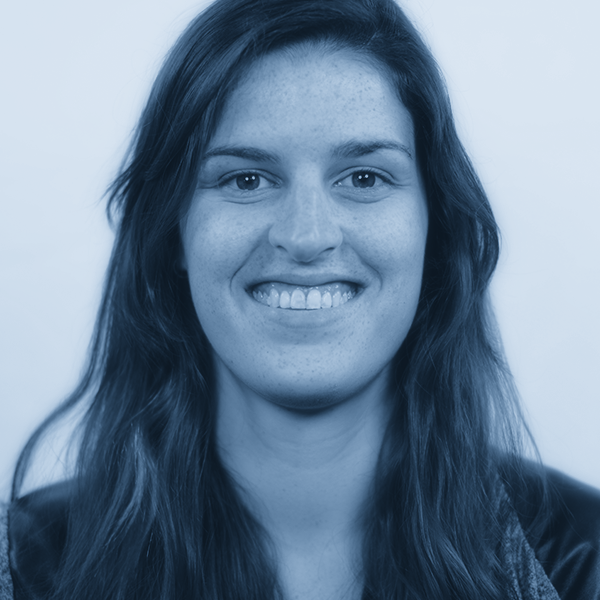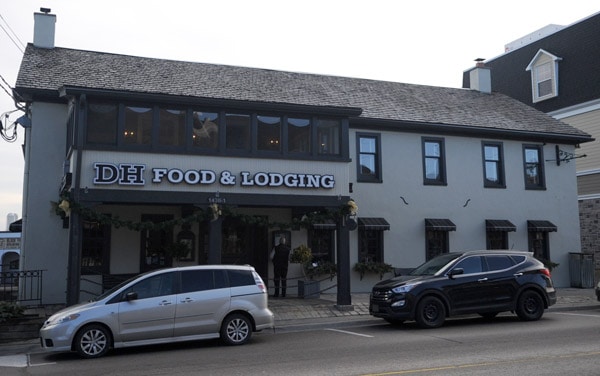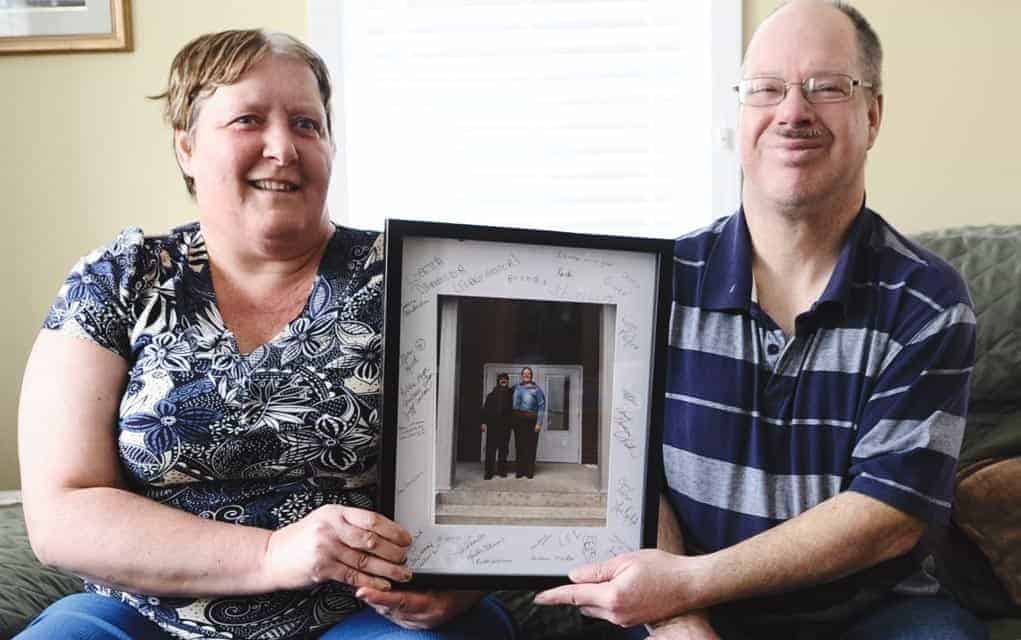Syrian refugees have finally been able to settle in and make a home in the Waterloo Region, months after arriving here.
For months, the DH Lodging hotel in St. Jacobs was bustling with the newcomers, but now, the property has gone quiet.
Christian Snyder is the community educator at Reception House, a Kitchener-based organization that provides housing and supports for government-funded refugees. He says the refugees that were temporarily housed in St. Jacobs have all found new homes to live in.
“Predominantly, they moved to Kitchener, although we have a family of ten for example, that has settled in St. Jacobs. They were not originally at the DH, they came afterwards,” he said of the one refugee family who settled in the small community. “One of the things is that we allow our clients to view a number of different housing options, and so a lot of them decided to move to where services are generally located in town. With the family that is living in St. Jacobs right now, it is a larger family – a family of ten. For them, too, to be able to have their own house is important to them.”
The Karawani family, all ten of them, have been living in a three-bedroom home in St. Jacobs for nearly four weeks. They found the home through Lester Weber and a group of helping hands. They were matched up through the Family Partnership Program at Reception House. Weber says the process moved quickly for the Karawanis, but everyone seems to be settling in just fine.
The group had initially purchased the home for a privately sponsored family, but when that family didn’t show up, it sat empty.
“So, we had this house available and nothing was happening with it. We had a group of people who were keen to be doing something, so I read the article in the paper about Reception House and what they were doing a few months ago, and it sparked my interest. I gave them a call, and told them that we had this house,” he said. “We had such a large group of sponsors that wanted to help, so we were a candidate to support such a large family. It is a small house for a family of ten, but it was their choice. That was on a Friday afternoon, we moved them in the next morning, literally within hours. It was fast. It caught us all a little bit off guard, but we were ready because we were waiting for a different family. We were prepared as best as we could.”
Weber and the group do everything they can for the Karawanis, including buying groceries, buying bus passes, home English tutoring until professional language training becomes available, taking them to doctor’s appointments and more. The group’s one goal is to have the Karawanis eventually feel comfortable enough to do all of this on their own. One thing that has surprised him is their upbeat attitude and their tendency to look towards the future.
“I have been quite surprised that we have not seen more negativity. Maybe they have done well to hide it, but I don’t know. From the day that we picked them up at the hotel, I was amazed at the attitude that they had. The children were singing on the bus the first time that we picked them up. I expected a bit of tension because we didn’t know each other, but I haven’t sensed a lot of emotional feelings,” he said. “It may still take a toll. Everybody reacts to those things differently. I haven’t pressed them on the issue or what their life was before they got here in the last two years. I gather that it has been two years since they left their home, and I also understand that their home no longer exists. There is definitely some emotional stress that is related to that, but I feel that they have adapted very well to where they are. They are willing to learn, they want to learn the language, and they want to become successful here as Canadian citizens.”
The youngest children in the family of ten have started school, and the oldest son has even started working at Frey’s Hatchery in St. Jacobs on a part-time basis. Weber assisted him with the interview and transportation.
“I took him for the interview, and we decided to give it a try. It was a great opportunity. We went and bought a bicycle for him, so he can get there, and he is starting at three days a week,” he said, adding that the next step is to do something similar for the other adults in the family. “We are exploring other opportunities for the other adults as well. But when language school comes available, that is the first priority.”









